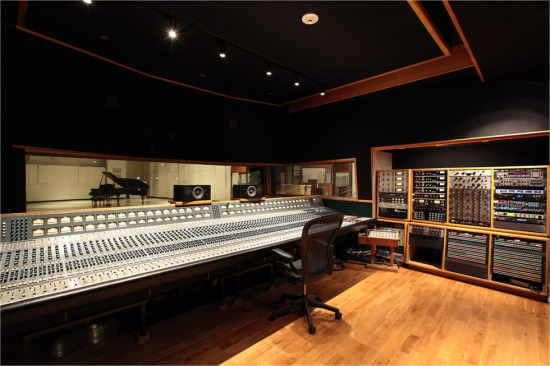Producer Prerequisites – 6 Unspoken Expectations Of The Modern Producer (Part 2)
 Read part 1 of this article here.
Read part 1 of this article here.
4. Tools of the trade
If you want to work, then you need the gear. Music production equipment is by no means cheap, and we often find ourselves making hard decisions and going without in order to try and build a collection of equipment that makes us useful to as many people as possible. The reality is that a client expects you to have at minimum a simple recording set up and computer to function commercially, so the question comes down to how you go about establishing this? The answer is strategic buying.
Firstly, we need to consider what we see as more important: quality or quantity? If we want to record bands, do we buy a single €2000 Neumann condenser to begin, or 14 t-bone microphones from Thomann? A long hard look at the fundamental requirements of your own set up is hugely important.
Secondly, consider the resale value of the gear you already have. When trying to upgrade, a great way to cut costs is to sell the equipment you are replacing rather than keeping it. There is a massive market out there for selling reduced price gear, so if you are trying to maximize expenditure and operating efficiency, get rid of gear you don’t need.
Thirdly, a balanced, logical and sequenced expenditure between software, sound libraries and hardware is essential. Consider with each potential purchase if an item or program will provide the largest scope of functionality directly after purchasing, or will it require an auxiliary purchase of other items to realise its true value? The biggest curse is over spending on plug-ins. There are thousands of plug-in’s available that essentially do the exact same thing, and yet most of us have upwards of 40-50 eq’s and compressors, most of which we never use. Improving your knowledge of the principals of equalization and compression is worth infinitely more than buying several of them.
5. Networks & resources
A lot of artists have next to no experience with production and don’t necessarily understand or appreciate the depth of knowledge it requires to really produce something to a high quality. So what does this mean for the producer? This means that when an artist approaches you to do work, they are doing so because they expect you to be able to fill the gaps in their own knowledge. The reality is that the modern producer needs to be very much over equipped with knowledge, and one of the best way to learn the best tips and tricks of the trade is to network. Networking is the single most valuable process outside of the immediate production-related tasks, both for gainful employment and for improving your position as a competitive producer in the eyes of the artist. Audio societies, music conventions, forums, community blogs, concerts and cultural events are 6 excellent places to begin making contacts and learning new things. Remember there will always be people who have been doing this for a lot longer, so staying humble, outgoing and soaking up all the information you can will quickly make you knowledgeable and more valuable to a client. Clients regularly ask for things to be done which are outside the traditional scope of the job, but if you can deliver you will forever be remembered as the ‘go-to’ guy.
There is no better way to solidify a production relationship with a client than to empower them with knowledge. Networking generates knowledge and expertise that directly affects the production experience you provide to your own clients. If you are not informing and developing your client, it might be worth reviewing your processes.
6. Character and etiquette
Ultimately having a unique, positive and charismatic personality is the reason long-term partnerships exist. Once efficiency and musical talent have been proved, the decision to work again with someone is majorly based on whether that person was capable of operating as a team player in an environment where negativity and bad social etiquette simply can’t be tolerated. Every outing, every session and every production is an opportunity to re-establish your persona as one who is simply good to have on the team. No one likes working with difficult people, and this is something that needs to be at the forefront of every practitioners mind every time they don
their work hat.
Denis Kilty is an Irish composer for games, and commercial music based in Dublin. - www.deniskilty.com